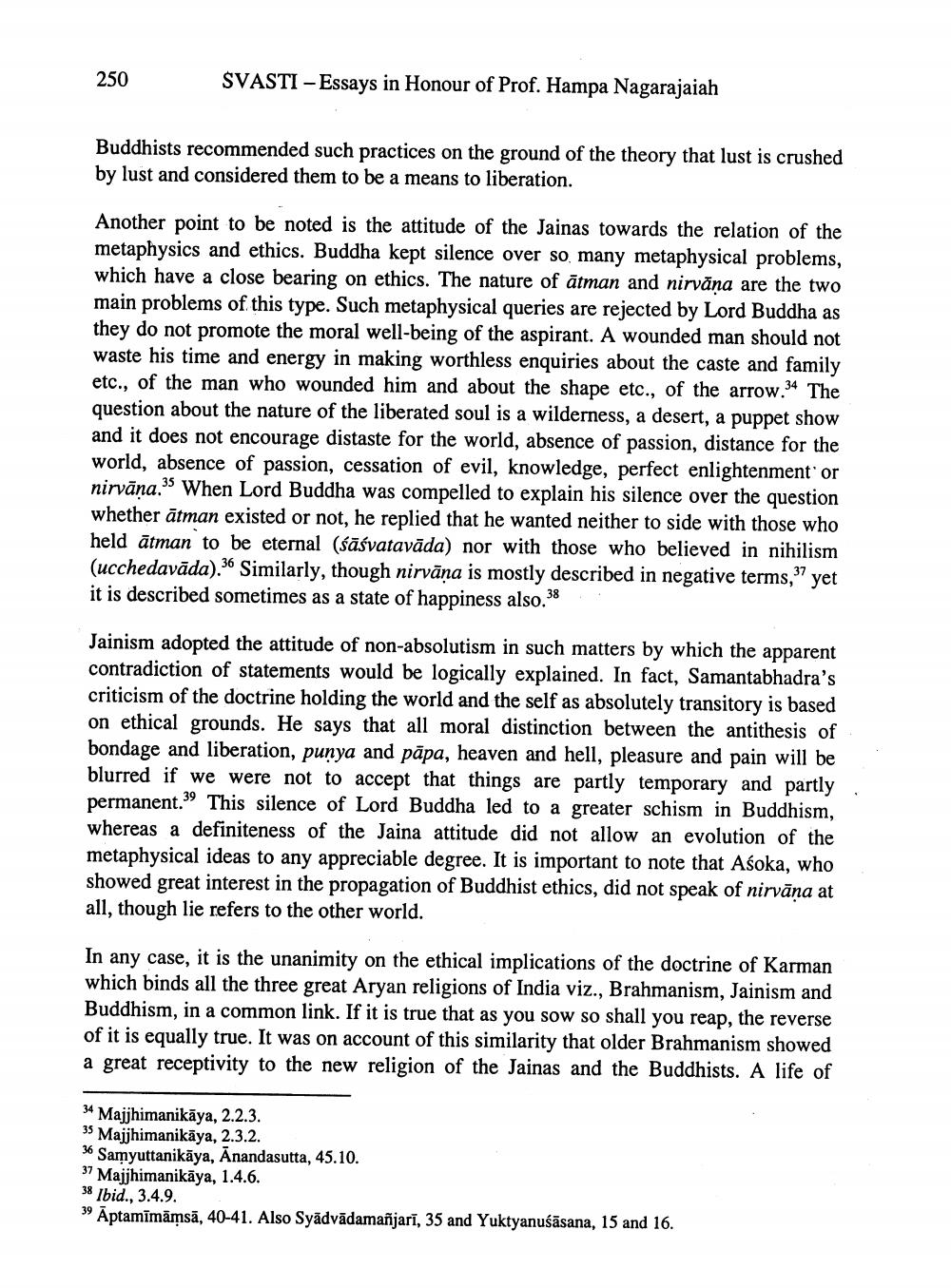________________
250
SVASTI - Essays in Honour of Prof. Hampa Nagarajaiah
Buddhists recommended such practices on the ground of the theory that lust is crushed by lust and considered them to be a means to liberation.
Another point to be noted is the attitude of the Jainas towards the relation of the metaphysics and ethics. Buddha kept silence over so many metaphysical problems, which have a close bearing on ethics. The nature of ātman and nirvana are the two main problems of this type. Such metaphysical queries are rejected by Lord Buddha as they do not promote the moral well-being of the aspirant. A wounded man should not waste his time and energy in making worthless enquiries about the caste and family etc., of the man who wounded him and about the shape etc., of the arrow.34 The question about the nature of the liberated soul is a wilderness, a desert, a puppet show and it does not encourage distaste for the world, absence of passion, distance for the world, absence of passion, cessation of evil, knowledge, perfect enlightenment or nirvāņa.” When Lord Buddha was compelled to explain his silence over the question whether ātman existed or not, he replied that he wanted neither to side with those who held ātman to be eternal (śāśvatavāda) nor with those who believed in nihilism (ucchedavāda). Similarly, though nirvāna is mostly described in negative terms, yet it is described sometimes as a state of happiness also."
Jainism adopted the attitude of non-absolutism in such matters by which the apparent contradiction of statements would be logically explained. In fact, Samantabhadra's criticism of the doctrine holding the world and the self as absolutely transitory is based on ethical grounds. He says that all moral distinction between the antithesis of bondage and liberation, punya and pāpa, heaven and hell, pleasure and pain will be blurred if we were not to accept that things are partly temporary and partly permanent.39 This silence of Lord Buddha led to a greater schism in Buddhism, whereas a definiteness of the Jaina attitude did not allow an evolution of the metaphysical ideas to any appreciable degree. It is important to note that Asoka, who showed great interest in the propagation of Buddhist ethics, did not speak of nirvāna at all, though lie refers to the other world.
In any case, it is the unanimity on the ethical implications of the doctrine of Karman which binds all the three great Aryan religions of India viz., Brahmanism, Jainism and Buddhism, in a common link. If it is true that as you sow so shall you reap, the reverse of it is equally true. It was on account of this similarity that older Brahmanism showed a great receptivity to the new religion of the Jainas and the Buddhists. A life of
*Majjhimanikāya, 2.2.3. 3 Majjhimanikāya, 2.3.2. 36 Samyuttanikāya, Anandasutta, 45.10. * Majjhimanikāya, 1.4.6. 38 Ibid., 3.4.9. 39 Aptamīmāmsā, 40-41. Also Syādvādamañjarī, 35 and Yuktyanuśāsana, 15 and 16.




